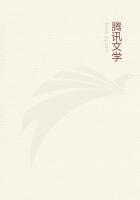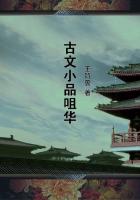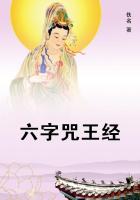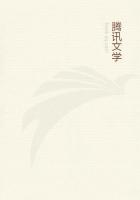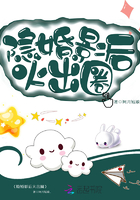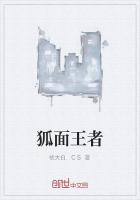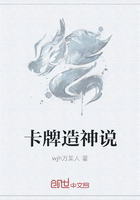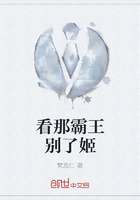Here the author's outburst came to an end, and he proceeded to take up the thread of his story, saying that the keeper, seeing that Don Quixote had taken up his position, and that it was impossible for him to avoid letting out the male without incurring the enmity of the fiery and daring knight, flung open the doors of the first cage, containing, as has been said, the lion, which was now seen to be of enormous size, and grim and hideous mien. The first thing he did was to turn round in the cage in which he lay, and protrude his claws, and stretch himself thoroughly; he next opened his mouth, and yawned very leisurely, and with near two palms' length of tongue that he had thrust forth, he licked the dust out of his eyes and washed his face; having done this, he put his head out of the cage and looked all round with eyes like glowing coals, a spectacle and demeanour to strike terror into temerity itself. Don Quixote merely observed him steadily, longing for him to leap from the cart and come to close quarters with him, when he hoped to hew him in pieces.
So far did his unparalleled madness go; but the noble lion, more courteous than arrogant, not troubling himself about silly bravado, after having looked all round, as has been said, turned about and presented his hind-quarters to Don Quixote, and very coolly and tranquilly lay down again in the cage. Seeing this, Don Quixote ordered the keeper to take a stick to him and provoke him to make him come out.
"That I won't," said the keeper; "for if I anger him, the first he'll tear in pieces will be myself. Be satisfied, sir knight, with what you have done, which leaves nothing more to be said on the score of courage, and do not seek to tempt fortune a second time.
The lion has the door open; he is free to come out or not to come out; but as he has not come out so far, he will not come out to-day. Your worship's great courage has been fully manifested already; no brave champion, so it strikes me, is bound to do more than challenge his enemy and wait for him on the field; if his adversary does not come, on him lies the disgrace, and he who waits for him carries off the crown of victory."
"That is true," said Don Quixote; "close the door, my friend, and let me have, in the best form thou canst, what thou hast seen me do, by way of certificate; to wit, that thou didst open for the lion, that I waited for him, that he did not come out, that I still waited for him, and that still he did not come out, and lay down again. I am not bound to do more; enchantments avaunt, and God uphold the right, the truth, and true chivalry! Close the door as I bade thee, while I make signals to the fugitives that have left us, that they may learn this exploit from thy lips."
The keeper obeyed, and Don Quixote, fixing on the point of his lance the cloth he had wiped his face with after the deluge of curds, proceeded to recall the others, who still continued to fly, looking back at every step, all in a body, the gentleman bringing up the rear.
Sancho, however, happening to observe the signal of the white cloth, exclaimed, "May I die, if my master has not overcome the wild beasts, for he is calling to us."
They all stopped, and perceived that it was Don Quixote who was ****** signals, and shaking off their fears to some extent, they approached slowly until they were near enough to hear distinctly Don Quixote's voice calling to them. They returned at length to the cart, and as they came up, Don Quixote said to the carter, "Put your mules to once more, brother, and continue your journey; and do thou, Sancho, give him two gold crowns for himself and the keeper, to compensate for the delay they have incurred through me."
"That will I give with all my heart," said Sancho; "but what has become of the lions? Are they dead or alive?"
The keeper, then, in full detail, and bit by bit, described the end of the contest, exalting to the best of his power and ability the valour of Don Quixote, at the sight of whom the lion quailed, and would not and dared not come out of the cage, although he had held the door open ever so long; and showing how, in consequence of his having represented to the knight that it was tempting God to provoke the lion in order to force him out, which he wished to have done, he very reluctantly, and altogether against his will, had allowed the door to be closed.
"What dost thou think of this, Sancho?" said Don Quixote. "Are there any enchantments that can prevail against true valour? The enchanters may be able to rob me of good fortune, but of fortitude and courage they cannot."
Sancho paid the crowns, the carter put to, the keeper kissed Don Quixote's hands for the bounty bestowed upon him, and promised to give an account of the valiant exploit to the King himself, as soon as he saw him at court.

